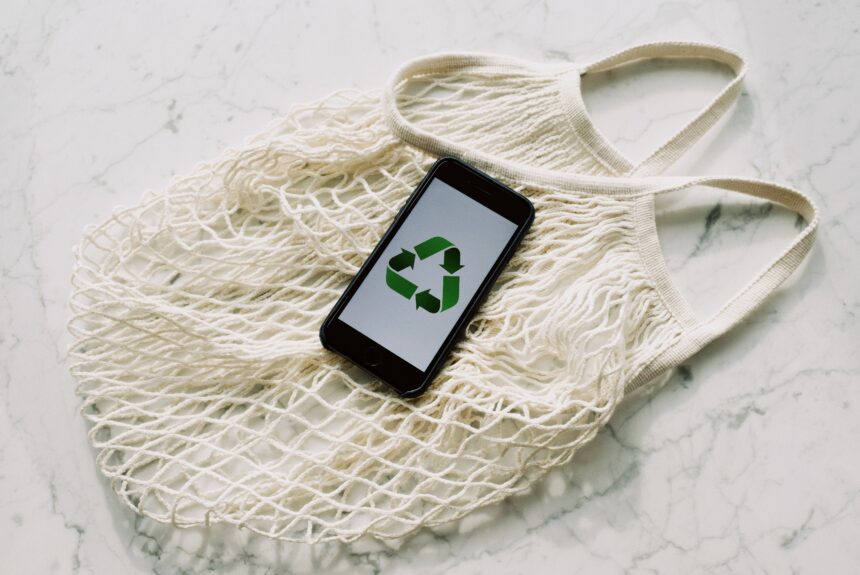Consumer spending accounts for nearly 70% of the U.S. economy and reached a record $14.2 trillion in the fourth quarter of 2022. Even amid rising inflation, personal consumption expenditures (PCE) remain by far the largest component of the national GDP.
Given their outsize influence on the U.S. economy, consumers are an important subgroup in the effort to build a more circular, climate-friendly future. Now, a new joint study from McKinsey and NielsenIQ has revealed how consumers are freely shifting their spending toward products with sustainability claims.
McKinsey and NielsenIQ analyzed five years’ worth of U.S. sales data for thousands of popular consumer packaged goods (CPG) ranging from sweet snacks to pet foods to sports drinks and found that, on average, products that made environmental, social, and governance-related (ESG) claims achieved disproportionate growth. Specifically, products designed with sustainability in mind achieved eight percent higher sales during the five-year period relative to non-ESG products, or 1.7% more on an annual basis.
“Products with [sustainability] claims grew faster than those products without claims, and…products with claims grew 170 basis points faster over that time period than those without claims…That’s about 28% cumulative growth over that five-year period versus 20% for products that make no such claims,” McKinsey Senior Partner Jordan Bar Am said during a Consumer Brands Association webinar.
Products with package label claims like “cage free,” “vegan,” “eco-friendly,” “biodegradable,” and “fair trade” now account for nearly half of all retail sales in the 32 food, beverage, personal care, and household categories evaluated in the study. In fact, in two-thirds of the categories, products bearing ESG-related labels reported faster growth than those that didn’t. This was true for both large and small brands alike.
The study also found that products with ESG-related claims outperformed their non-ESG counterparts across all price points. Higher-priced brands outgrew their competition in about 60% of the categories listed in the report, while “budget” brands and store brands reported a similar 63%.
“So this is not just the domain of premium-priced and premium-tiered products, this is something we see resonating across price tiers,” Bar Am said.
In effect, the study tracked “dollars over sentiment,” laying rest a worrying concern that consumers may just be paying lip service to the idea of sustainability without actually following through on their self-reported preferences.
>>>READ: Consumers Demand Sustainability, But Some Brands Can’t Stop Greenwashing
“There is strong evidence that consumers’ expressed sentiments about ESG-related product claims translate, on average, into actual spending behavior,” the authors conclude. “And this suggests that companies don’t need to choose between ESG and growth. They can achieve both simultaneously by employing a thoughtful, fact-based, consumer-centric ESG strategy.”
While the results of this study are encouraging for many free market environmentalists, it is important for consumers to be able to verify the sustainability claims of companies and corporations. Several methods that are deemed to be eco-friendly actually have unintended environmental consequences. Single-use coffee pods, for instance, have long been thought of as an environmental hazard until a recent report was published which found that traditional drip coffee can have a carbon footprint that 1.5 times higher than single-use pods.
The study underscores how this eco-awakening is being driven from the bottom-up, not from environmentally grandstanding politicians or federally-imposed mandates. As net-zero targets loom large, companies that make a clear and concerted effort towards sustainability are being rewarded by the American consumer.
Nathalie Voit is a freelance content creator and a graduate of the University of Florida. She is an alumni of The Heritage Foundation’s Young Leaders Program.
The views and opinions expressed are those of the author’s and do not necessarily reflect the official policy or position of C3.
